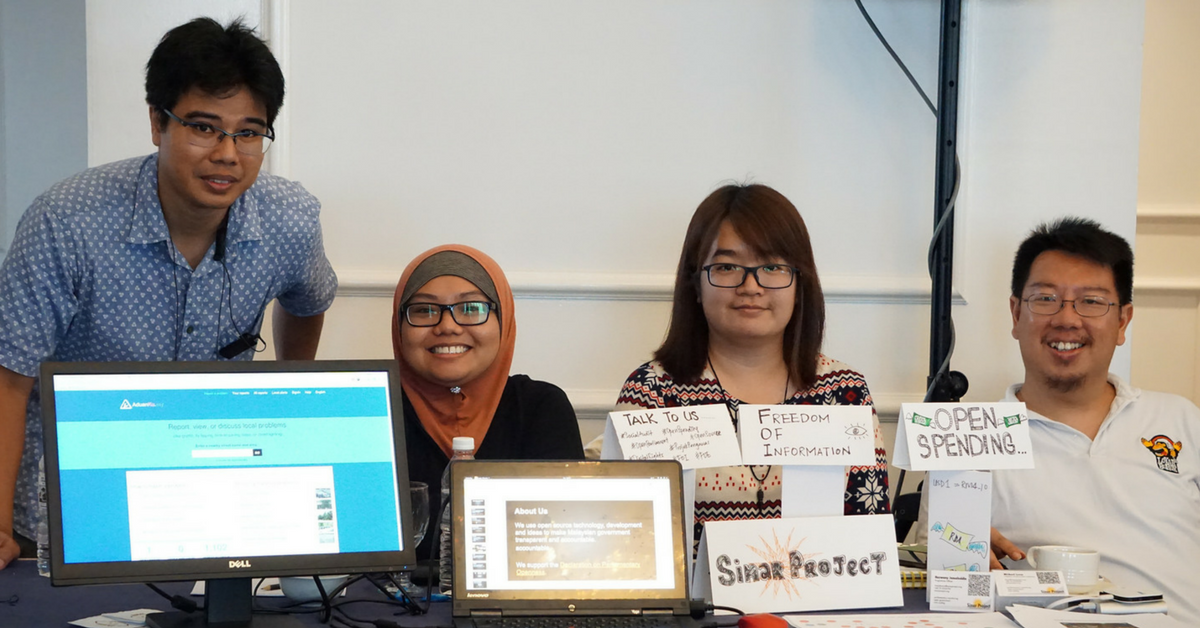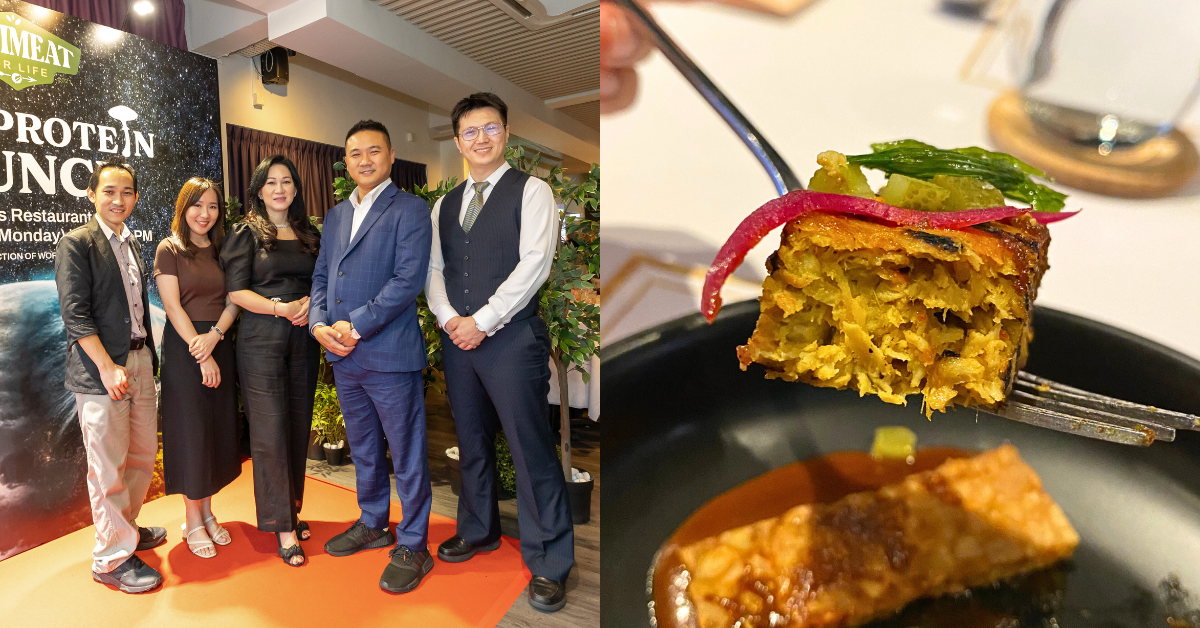- Sinar Project is an NGO that aims to collect a database of political information in Malaysia, and provide an open source code for anyone looking to do the same.
- It began when a leaked parliament bill was stopped thanks to public action. This made the founders realise the importance of Malaysians taking an educated stand in their own politics.
- However, the NGO is dogged by problems with funding, and a lack of interest in similar projects in Malaysia.
With all the news about the upcoming elections, you may have seen a project to build a GE14 website that aims to display as much information as possible about candidates that are running in the upcoming elections.
The idea is for the rakyat to see exactly which politicians aren’t transparent about their qualifications or assets, or those who make hate speeches or are against human rights.
The goal? To keep everyone accountable.
The NGO behind the list, Sinar Project, has this and many other data-based projects running with the aim of keeping the Malaysian politicians honest and accountable with their campaign promises.
And their small office of three permanent staff (with three other freelance helpers) is often the only resource to enter a massive pool of open data that wouldn’t otherwise be available to the normal public—like federal and state budget breakdowns, bills tabled in Parliament and a repository of digitised electoral boundaries of each constituency (to keep track of gerrymandering).
They keep track of any parliamentary replies of topics like sexual crimes and toll rates too.

A huge chunk of this data is hosted on their server, which is actually a personal tower computer set up in their office.
It all started when a group of IT professionals were appalled by a leaked bill that was going to pass.
According to Khairil Yusof, coordinator of Sinar Project, a few hundred angry IT professionals stormed a public feedback meeting in 2011 when they caught wind of a leaked draft of a legislative bill.

“If the bill was to be passed, it would require everyone working in the IT industry to take certifications and meet certain qualifications set by a government body, before they would be allowed to practice IT, whether it was networking or software development.”
The storming worked and the bill was dropped, but this gave them a chilling realisation. If the bill did not happen to leak, then their livelihoods would have been impacted before they even realised what was happening.
“We needed to take a more proactive approach to being involved with government legislative process, as non-involvement would lead to bills and laws passed that would severely affect our professional livelihoods.”
– Khairil Yusof
So a few open source developers came together to begin and take on a more systematic approach at government transparency and fighting corruption in Malaysia, starting with tracking local legislative bills.

On top of curating these databases for Malaysians to look at, Sinar Project also aims to keep all of their codes and apps out in the open for anyone in the world to comment on, improve upon, or even emulate in their own areas.
Fast forward to 2014, where winning the ISIF Asia Award for The Development of Rights category netted them RM8,000 and a small grant, which finally allowed Sinar Project to start in earnest.

It is now a fully-fledged organisation and Khairil and his teammates can work on it full-time, with various projects under their belt including their Popit API, which collects and maintains a huge array of information based on the Popolo standards (a data standard used to monitor democratic organisations and their decision-making processes).
One of the key elements about Sinar Project is their non-partisan status.
“While individually we might be partisan with our own individual goals and beliefs, as an organisation we are bound by our organisation goals which are the Declaration on Parliamentary Openness and the Open Data Charter,” said Khairil.
They’re also bound by the Universal Declaration of Human Rights, as they’re a rights organisation.
“Similarly like open source, our data and information are openly licensed. Meaning there are no restrictions on who uses it. We build our tools for the Malaysian public, which means everyone can use them,” said Khairil.
Malaysians that have indeed used their data includes UndiMsia’s MyMP project, which has MP information powered by their website and their open data API.
Internationally, there’s also Sinar Project’s Project’s Myanmar-based partners Open Hluttaw, who have been making use of their open infrastructure. They use the Popit API to provide extensive information on the elected representatives in Myanmar as a website and a mobile app.
Unfortunately, this NGO is still dogged with many difficulties, even today.
Too many of us don’t understand the importance of civil society tech infrastructure and policy.
There is a need for a proper resource dedicated to keeping track of political information, like elections.
“As our society becomes highly dependent on digital tools, and demand immediate answers when doing a Google search, many don’t realise the amount of work needed behind the scenes to provide the answers they’re looking for,” said Khairil.
On the other side of the spectrum, there’s also threats of online censorship and offline mechanisms that could restrict Sinar Project’s freedom of speech.
“Since 2015, the current government now has openly blocked sites that are critical of politicians or government policies,” said Khairil.
“Our work will have limited impact if participating in critical online discourse with use of our tools can result in people get arrested or media outlets censored, even if the discussions are using open data and official documents made easily accessible by us.”
Difficulties in registering as a non-profit in Malaysia has also led to funding issues.

“We only have limited funds for 2 full-time people, and even then we have to take side jobs to make ends meet. Yet we are the leading civic tech NGO in Southeast Asia, and often [serve as] representatives to provide highly technical inputs for our region for international conferences and projects.”
According to Khairil, it’s almost impossible for NGOs to register as a non-profit in Malaysia. This is why Sinar Project, like many other rights organisations in Malaysia, are registered as LLP.
This is a significant barrier to funding and sustainability. They can’t legally apply or receive any non-profit options for tech services such as hosting and online services. And their individual donors are also subject to taxes.
So too, are Sinar Project. If they aren’t careful with the funds received and have money left over, it can be taxed to them as profit.
There’s also the issue of their dwindling funds, as you can see on their funding page.
“We don’t have digital or tech NGOs like they do overseas, like Electronic Frontier Foundation, Linux Foundation, Gnome Foundation and more. The restrictions I’ve mentioned earlier play a part,” said Khairil.
He also worries about our education system, which does not impart the importance of civic participation in a functioning democracy.
“So it this adds another challenge to sustainability. Many people we talk to assume that we are doing this voluntarily, and unlike say, Silicon Valley where major IT companies donate significant amounts of funding to support civic tech organisations and spaces like Code for San Francisco—Microsoft sponsored the entire office,” said Khairil.
Meanwhile, they’ve only had one private company sponsor their parliamentary documents project, but only for RM1,000. That’s a fifth of their annual hosting budget.

It takes a very long time to make a change in this sphere.
“While we often look at the US or UK and wonder why we are not as advanced, it’s because we are still very young as a democracy, and even younger for civic tech.”
Fortunately, Sinar Project means that we’re at least at a good starting point, and can provide an institutional foundation for the future.
While there are currently a lot of constraints holding them back, Sinar Project hopes that their information sharing and internships with them is doing some of that crucial foundational work.
They want Malaysians to see that they can “do tech for public good and help make a difference for a better society as a professional working on civic tech.”
No matter where your political leanings lie, having a resource such as one provided by Sinar Project is crucial in developing an actual democracy. It means that we can keep our politicians accountable. Or even like cases how Sinar Project started, actually have a voice when parliament is looking at passing legislation that could impact us.
- You can find out more about Sinar Project’s web applications and databases on their website, or get updates on their Slack and Facebook Group.
Feature Image Credit: Sinar Project










